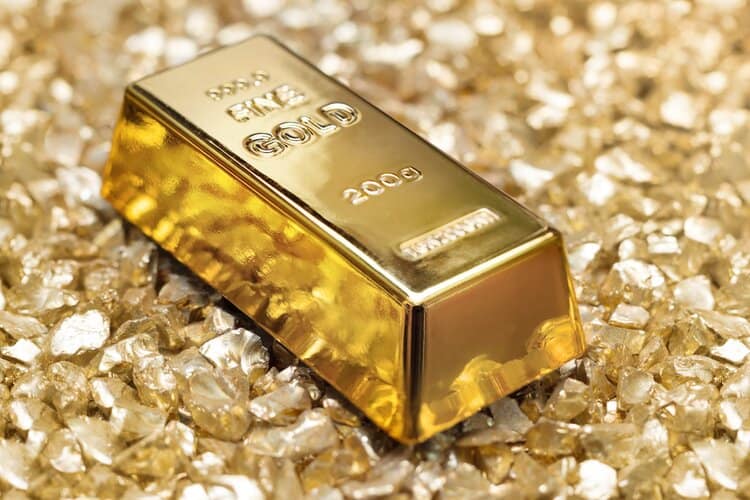The gold market has been steady so far in June, trading between $1,940 and just under $2,000 an ounce. But analysts warn that after weeks of sideways price action, gold is ready for a more significant move.
The caveat is it could be in either direction, Gainesville Coins precious metals expert Everett Millman told Kitco News. “Gold has traded sideways long enough that we are due for a bigger move one direction or the other — retesting the $1,880 level or getting back up to around $2,000,” Millman said.
The Fed confused the markets Wednesday with a “hawkish pause” and a promise of two more rate hikes.
“What the Fed did was neutral for gold. A pause is good for gold. But it was the most hawkish pause we could have gotten. And that is why gold has traded sideways,” Millman explained.
Gold is holding up well in the face of the Fed’s warning of two more rate hikes, OANDA senior market analyst Edward Moya told Kitco News.
“The Fed locked themselves into a hold since they signaled they were going to do that before the meeting,” said Moya. “There was a communication mistake by Fed Chair Jerome Powell in weeks leading up to this decision. Otherwise, data supported the hike.”
At the press conference, Powell did not commit to a rate hike in July, stating that the U.S. central bank will remain data-dependent, added Moya.
“Fed Chair Powell is trying to keep optionality on the table. There’s a chance we could have continued softer inflation prints. He doesn’t want to lock himself in,” he said. “That’s why gold is not at $1,900. If the Fed’s dot plot was confirmed at the press conference, gold would be trading at $1,900.”
At the time of writing, August Comex gold futures were trading at $1,968.20, down 0.13% on the day and largely flat on the week.
Markets are currently pricing in one more rate hike in July only. If that changes, gold will react, the analysts said.
In the meantime, gold is paying close attention to macro releases and the U.S. dollar. Also, precious metals investors are monitoring central bank gold buying activity, which has slowed in the second quarter.
“Even though it slowed down quite a bit,” said Millman. “The World Gold Council survey said that one in four central banks planned to continue to buy gold. They buy in large volumes, and gold will respond to what central banks are doing.”
Mixed signals and gold’s price direction
There is still a risk of a significant selloff in the gold market because that would be symmetrical to what happened over the past two years when gold reached $2,000 an ounce, Millman pointed out. “The next most likely move for gold is lower,” he said.
Markets are eyeing Powell’s two-day testimony before the House and Senate next week, a lineup for Fed speakers, and more macro releases.
“Gold is going to be facing a lot of mixed signals next week,” said Moya. “Fed speakers, flash PMIs, and more easing from China (commercial banks are cutting rates). In theory, we could still see risk appetite holding in there, which will keep gold choppy.”
With the Fed largely data-driven into the July meeting, macro releases could become big market movers.
“Gold pricing is still searching for confirmation that the Fed is really done and/or a US$-negative catalyst,” said MKS PAMP head of metals strategy Nicky Shiels. “Data will become more sensitive and important into a July meeting where a hike is pretty much guaranteed.”
Gold’s technical trading is also essential to monitor. The longer the precious metal remains steady in the face of this hawkish pressure, the more likely prices will rally, noted Shiels.
“On the surface, it’s a bearish precious outcome, but the longer gold can’t go down, [it] must go up. The thinking is that gold prices will read through their hawkish rhetoric/talk, and at the core is, the Fed has paused (and can pause again) = therefore, they’re done,” she said.

